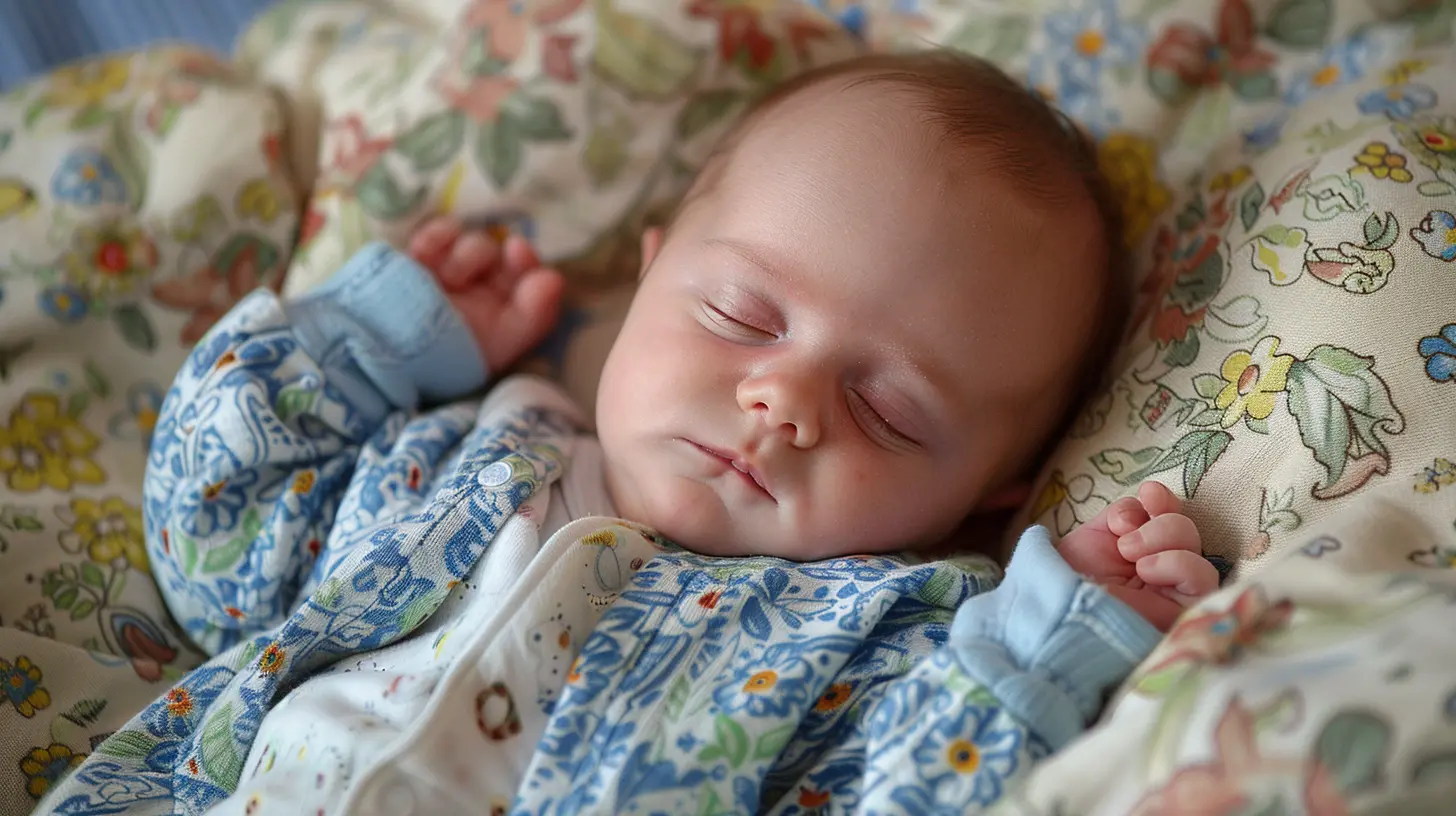Common Sleep Training Myths Debunked: What Really Works?
11 May 2025
Sleep training is one of the hottest topics in parenting circles. Some parents swear by it, while others argue that it’s harmful. There are endless myths floating around, making it hard to know what's true and what's just fear-mongering.
If you're struggling with sleepless nights and wondering if sleep training is right for your baby, you're in the right place. We're going to debunk some of the biggest myths and get to the facts—so you can make informed decisions with confidence!

Myth #1: Sleep Training Means Letting Your Baby Cry It Out for Hours
One of the biggest misconceptions about sleep training is that it’s all about letting your baby cry until they eventually pass out from exhaustion. This couldn’t be further from the truth!While some methods do involve short periods of crying, sleep training isn't just about ignoring your baby's needs. It’s about teaching them how to fall asleep independently. There are multiple approaches, including:
- The Ferber Method (gradual check-ins)
- The Chair Method (staying in the room but reducing interaction)
- The Fading Method (gradually decreasing assistance)
Not every method involves long crying spells. In fact, many parents find gentle approaches that work without excessive tears!

Myth #2: Sleep Training Will Damage Your Baby’s Emotional Health
Many parents fear that sleep training will harm their child emotionally or make them feel abandoned. However, research tells a different story. Studies have found that sleep training does not cause long-term emotional harm.In fact, babies who sleep well are often happier and more well-adjusted because they’re well-rested. Proper sleep also benefits parents, improving overall family well-being.
Of course, every baby is different. If you choose a method that feels comfortable and responsive to your child’s needs, you can help them sleep better without causing distress.

Myth #3: Sleep Training Only Works for Certain Babies
Some parents believe sleep training simply won't work for their baby. Maybe they've tried and failed, or they think their little one just isn't cut out for it.Here’s the truth: every baby can learn healthy sleep habits—some just need a different approach.
Some babies adapt quickly, while others take more time. Factors like temperament, sleep associations, and consistency play a big role. If one method doesn’t work, it doesn’t mean all sleep training is a failure—it just means you may need to tweak your approach.

Myth #4: Sleep Training Means Zero Night Wakings
Wouldn’t it be amazing if sleep training guaranteed your baby would never wake up at night? Unfortunately, that’s not how it works.Babies (and even adults!) wake up naturally throughout the night. The real goal of sleep training is teaching a baby to self-soothe so they can fall back asleep on their own without help.
It doesn’t mean your child will sleep 12 hours straight every night, but it does mean they can learn to navigate night wakings without needing you every time.
Myth #5: Sleep Training Should Start at a Specific Age
Some parents think they missed their chance if they didn’t sleep train at 4-6 months, but that’s simply not true!While many sleep training methods work best for babies between 4-6 months, it's never too late to improve sleep habits. Whether your child is 9 months, 18 months, or even a toddler, you can still introduce sleep strategies tailored to their age.
Older babies might take a little longer to adjust, but with consistency and patience, improvements will come.
Myth #6: Sleep Training Means No More Cuddles or Comforting
Some parents hesitate to sleep train because they worry it means cutting off all forms of comfort. But the reality is, you can still provide love, reassurance, and snuggles while setting healthy sleep boundaries.Sleep training doesn’t mean you can’t rock your baby or hold them close—it simply helps them develop independent sleep skills when it’s time for bed.
You can still offer affection, just in a way that encourages self-soothing rather than full dependence on you to fall asleep.
Myth #7: Sleep Training Is a One-Size-Fits-All Approach
There is no "one perfect method" that works for every baby. Some parents have success with gradual sleep training, while others find a more structured approach works better.Like everything in parenting, it’s about finding what works for your baby and your family’s lifestyle. Stay flexible and be willing to adjust if needed.
What REALLY Works?
Now that we’ve busted these myths, let’s talk about what actually works when it comes to sleep training:1. Consistent Bedtime Routine
A predictable routine signals to your baby that it's time to sleep. Try:- A warm bath
- Gentle massage
- Dim lights
- Reading a short book
- A lullaby
The key is consistency—doing the same steps in the same order every night helps cue your baby's brain for sleep.
2. Sleep-Friendly Environment
Creating the right sleep environment makes a huge difference.- Keep the room dark and cool
- Use white noise to block out distractions
- Invest in a comfortable mattress or sleep sack
Eliminating unnecessary disturbances helps babies sleep better naturally.
3. Teaching Independent Sleep Skills
Instead of always rocking or feeding to sleep, gradually help your baby learn how to do it on their own. Try:- Putting them down drowsy but awake
- Using a gentle sleep training method
- Allowing them time to self-soothe
This doesn’t mean they have to cry it out—it just means giving them space to figure out sleep independently.
4. Managing Night Wakings Wisely
Instead of rushing in at every noise, give your baby a few minutes to settle. Sometimes, they might fall back asleep on their own!If they need you, respond in a way that encourages self-soothing (like a gentle back rub instead of picking them up right away).
5. Being Patient and Flexible
Sleep training isn’t magic—it takes time and consistency. Some nights are harder than others, but sticking to your plan will lead to long-term success.And if something isn’t working? Tweaking your approach to fit your baby’s needs is always okay!
Final Thoughts
Sleep training is often misunderstood, but once you separate fact from fiction, it becomes much easier to navigate. It’s not about abandoning your baby or forcing them into a rigid system—it’s about gently teaching them the skills they need for healthy sleep.With patience, the right approach, and a sprinkle of trial and error, your family can enjoy restful nights without the guilt or unnecessary stress. Sleep is important for everyone—so don’t be afraid to embrace what works best for your little one!
all images in this post were generated using AI tools
Category:
Sleep TrainingAuthor:

Maya Underwood
Discussion
rate this article
3 comments
Tiffany McCaffrey
Sleep training myths are like bedtime stories – entertaining but often not true! Let’s separate fairy tales from sleep tales and discover what actually snoozes!
May 15, 2025 at 3:01 AM

Maya Underwood
Great analogy! Let’s uncover the facts behind sleep training to help parents find effective solutions.
Paul McBride
Thank you for this enlightening article! It’s comforting to see myths debunked and to finally understand what truly supports our little ones’ sleep. Your insights remind us that every family’s journey is unique, and finding what works best is key. Grateful for your guidance!
May 12, 2025 at 4:21 PM

Maya Underwood
Thank you for your kind words! I'm glad the article resonated with you and helped clarify these important concepts. Every family's journey is indeed unique!
Faryn McLean
In the quiet hours where shadows play, Sleep training myths drift softly away. With wisdom wrapped in love's embrace, We find true paths, a gentle space. Through the night, together we'll roam, Crafting sweet dreams, creating a home. Let truth be our guide, as we softly sway.
May 11, 2025 at 2:39 AM

Maya Underwood
Thank you for the beautiful words! Embracing love and wisdom truly guides us in navigating sleep training to create peaceful nights for both parents and children.



